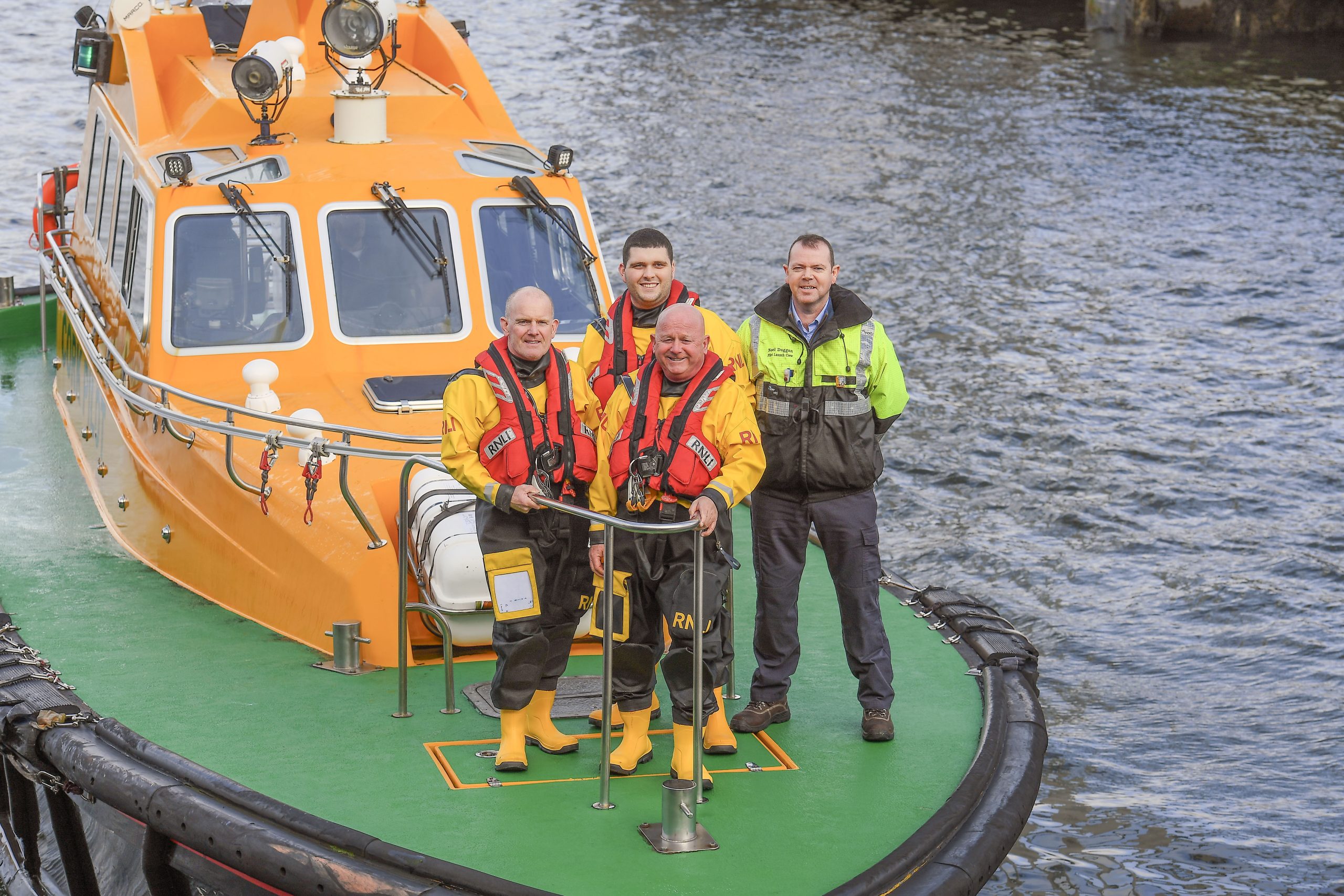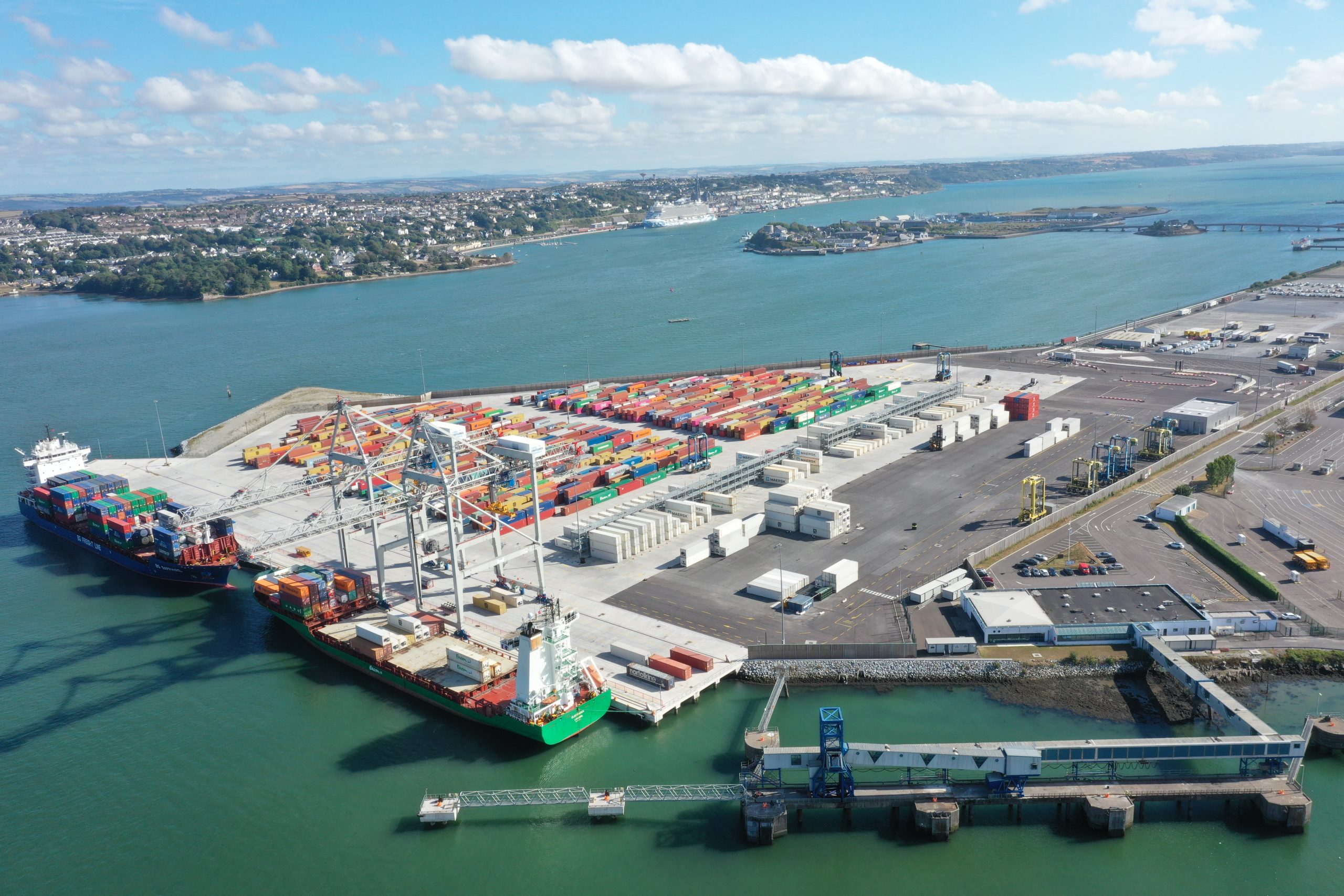Port of Cork Company Partners with RNLI to Promote Water Safety Campaign
The Port of Cork Company proudly announces its collaboration with the Royal National Lifeboat Institution (RNLI) to launch a new water safety campaign aimed at promoting essential lifesaving practices. This partnership comes as the RNLI commemorates its 200th anniversary, marking two centuries of dedicated service to maritime safety.

The core message of the RNLI and Port of Cork collaboration is clear: in the event of a water emergency, remember to “Float to Live.” This simple yet effective technique involves tilting your head back with ears submerged, maintaining control of your breathing, and using your hands to stay afloat. If possible, call for help or swim to safety.
The campaign features water safety tips and promotional materials posted within the main Ferry Terminal building at the Port of Cork Ringskiddy which 116,000 ferry passengers passed through in 2023, on route to and from Ireland.
Conor Mowlds, Chief Commercial Officer at the Port of Cork Company, emphasised the significance of promoting water safety, stating, “Ensuring the safety of all individuals navigating our waters is paramount. Our partnership with the RNLI underscores our commitment to this mission, as we strive to create a safer maritime environment for everyone. We are delighted to help amplify this message by sharing life-saving water-safety tips to the 100,000 plus passengers who pass through our ferry terminal annually.”
Linda-Gene Byrne, RNLI Regional Water Safety Lead, expressed enthusiasm for the collaboration, highlighting its potential to reach a wider audience. “The partnership between the Port of Cork and the RNLI’s water safety team is invaluable. It provides a crucial platform to share vital water safety messages, ensuring that every traveler passing through the ferry terminal has access to essential knowledge that could save lives if they find themselves in an emergency situation in Ireland or abroad.”
Founded on the principles of safeguarding lives at sea, the RNLI has been a steadfast presence in Irish waters, supported by the unwavering dedication of volunteer crews and public generosity. In 2024, as part of its RNLI200 initiative, the organisation seeks to commemorate its rich heritage, celebrate its achievements, and inspire future generations to prioritize water safety.
As the Port of Cork Company and the RNLI join forces to promote water safety, their shared goal remains steadfast: to save lives and ensure the safety of all who venture into the waters, both in Ireland and abroad.
For more information about the Port of Cork Company please visit www.portofcork.ie
For more information on the the RNLI, please visit www.rnli.org
About Port of Cork Company
The Port of Cork is the world’s second-largest natural harbour and a key international trade gateway. It is the key seaport in the south of Ireland and is one of the three Ports of National Significance (Tier 1) as designated by National Ports Policy.
The National Ports Policy mandates Tier 1 Ports to lead the response in meeting Ireland’s future port capacity requirements. In this capacity, the port is also central to the national economic growth given that national ports handle approximately 90% of all imported and exported tonnage in Ireland.
As a multi-model port it is only one of two ports in Ireland to service all six shipping modes – lift on/ lift off, roll-on/ roll-off, liquid bulk, dry bulk, break bulk and cruise.
The Port of Cork Company (PoCC) is a commercial semi-state company responsible for the broad range of commercial running of Cork harbour as well as the navigation and berthage in the port.
In 2022, the Ports of Cork and Bantry reported a total consolidated traffic throughput of 10.2 million tonnes. The PoCC’s direct workforce is 170 staff, however, it supports thousands of jobs through indirect employment through warehouses, hauliers and shipping agents.
PoCC is a hugely important catalyst for trade and employment, offering direct connectivity to a global supply chain, particularly for FDI. 35 of its top customers are from industries such as Med-Tec, Pharma, IT, chemical and Agri-Food accounting for €145 billion of manufacturing and supporting over 45,000 jobs directly in the southwest region.
